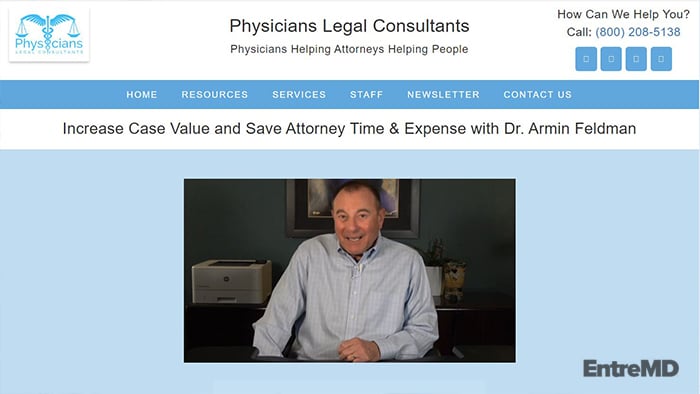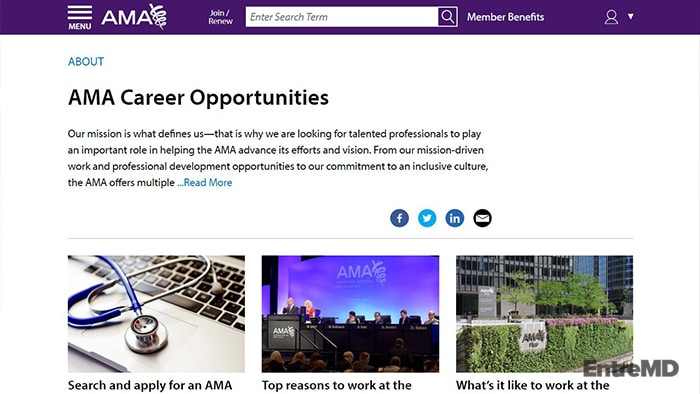Although the general public may not understand why on earth a physician would want to have a part-time gig, as an entrepreneurially-minded doctor, it makes perfect sense.
No matter what your motivation (contributing to your retirement if you started saving later in life, funding a particular goal, paying down debt, transitioning to a second-stage career, or simply giving to or supporting a cause you’re passionate about), many doctors are taking on a side hustle while still practicing medicine.
Branching out to become a part-time medical-legal consultant is one great option that uses the education and training we’ve accumulated over the years and puts it to good use in the legal field.
What is a Medical-Legal Consultant?
Simply put, the work of a medical-legal consultant is basically that of a “translator” between the world of medicine and the legal world.
Some medical-legal consultants also have enough legal training to become consultants in law and healthcare. This type of consultation can be used in training medical professionals on how their care for and treatment of patients may have legal consequences and how to protect themselves.
The emphasis on the “legal” contribution made as a medical-legal consultant lets this type of consultant become legal advisors to hospitals, insurance companies, and government agencies.
For this post, I’m going to focus on the work you can do without extra legal training that results in an additional specific designation (MLA, MPLC) or degree work. The most common type of consulting involves personal injury and insurance claims.

According to an article in the Physician’s Money Digest, the “bulk of medical-legal consultation consists of examining medical records and writing a well-annotated report specific to the case.” The consultant may also need to gather and study information that’s related to a case and look at medical charts to see if they’ve been altered in any way.
In some cases, medical-legal consultants are hired to find and interview witnesses in an upcoming case.
Physicians who do this work need to be able to look beyond a single obvious explanation for a clinical scenario and be able to offer objective feedback. Staying current on medical issues is also important.
Dr. Armin Feldman
Perhaps one of the best-known and most well-respected physicians who has worked as a medical-legal consultant is Dr. Armin Feldman. After selling his nationwide stable of outpatient head injury rehab clinics, he realized he wasn’t ready to retire and was looking for satisfying work consistent with his stage in life.
Dr. Feldman had, during the course of his career, testified as an expert witness “more times than I want to remember on behalf of my patients who are either being cut off their medical care or offered some pits of a settlement.”
At this point in his career, he was familiar enough with the legal system that it occurred to him that he could consult with attorneys on “any kind of medical question that came up in a case and work with them — pretrial pre-litigation.”
He soon found that when he worked with attorneys in this way, nine times out of ten cases were settled before they made it to a courtroom, saving individuals thousands and thousands of dollars. Dr. Feldman has since gone on to train over 1,600 physicians around the country to do the same work.

He explains in simple terms how his consultation works. He receives a call from an attorney to discuss an upcoming case, after which he’ll be sent the medical records. Once the records have been reviewed, he’ll interview the client. Interestingly, he only meets in person with these clients less than 3% of the time.
Following this meeting, he does any medical research necessary and then writes a report. Even though many services don’t require that he write a report, Dr. Feldman and the doctors he trains regularly write these reports as a way to answer any kind of medical question that arises.
Read this short article by Dr. Feldman in a case where he helped the legal team refute the question of a pre-existing medical condition. Or this article where he was asked to give his opinion on the causation of specific traumatic injuries, sometimes for a work-related situation, sometimes for a personal injury case, or some other circumstances.
As a physician driven to help my patients and their families, I have tremendous respect for what drives Dr. Feldman. I’ve read quite a bit about him, and his motivation consistently is to “….better settle the case….for better value with less attorney time. Help the attorney get the appropriate medical care for their clients, and also help the attorney just to negotiate all the medical issues in the case.”
The Difference Between a Medical-Legal Consultant and a Medical-Legal Witness
The critical difference between a medical-legal consultant and a medical-legal witness is that an expert witness will testify in court hearings. In contrast, a legal consultant does not appear in court and bear witness.
This distinction matters because any work you do as a medical-legal consultant will be considered privileged and not discoverable by the opposing party. For an attorney, this means you’ll be a secret weapon they can use in a case.
Qualifications for a medical-legal witness go beyond the expertise they bring. Expert witnesses will need to be able to present and speak well publicly, look the part of a professional, and most importantly, stand up well under the stress of cross-examination.

Qualifications for a medical-legal consultant don’t involve any face-to-face interactions with the public — judge, jury, opposing counsel, or courtroom audience. The job consists of providing the legal team with the information they require to build and present their case.
Of course, the work you do as a medical-legal consultant can be used in court as a medical-legal and expert witness. This could happen if the legal team decides you would be the best person to explain the case and answer opposing counsel’s questions.
Then all the work you’ve done to date under your medical-legal consultancy would be released by the lawyer to opposing counsel. And your fee structure for this type of work would also change.
The Work of a Medical-Legal Consultant
Most of the work a medical-legal consultant performs for lawyers and insurance companies can be summed up in three parts.

They:
- Write comprehensive medical summary reports.
- Write independent medical exam rebuttal reports.
- Answer specific medical questions.
Comprehensive medical summary reports
Once you’ve reviewed all the medical records available in a case, interviewed the client, and read any pertinent literature, you’ll be able to write a comprehensive medical summary report that includes your medical opinions. These reports are all backed up by the medical literature the lawyers will need in order to settle the case.

The comprehensive nature of this report may include some or all of the following:
- Reviewing the medical records to see if established standards of care were met.
- Chronologically organizing the medical record and creating a reference page in chart form to indicate where relevant documents are found.
- Isolating and identifying relevant facts from irrelevant ones.
- Screening the information available for merit to determine whether there is a case to answer.
Often, this comprehensive medical summary report will be included in a settlement demand letter or package. Attorneys need to describe all damages, including the medical issues that were caused by the accident, in their settlement letter. The report a medical-legal consultant writes includes their medical opinions and is an important part of this pretrial, pre-litigation settlement attempt.
Independent medical exam rebuttal reports
Independent medical exams (IMEs) are part of most, if not all, legal and insurance claims. When the medical exam report comes back and is unfavorable to the client’s claim, a medical-legal consultant will have the opportunity to write a rebuttal report.
This involves reading through the original report to see if the conclusion the report came to seems correct or if it seems to dismiss an injury claim unfairly. Again, the work involved will include reading the medical records and interviewing the client, observing the history and physical exam in the IME, and reading supporting and related medical literature.
A common issue in IMEs is where the opposing counsel takes the information and decides that the injured party had a pre-existing condition, therefor any claim for compensation should be denied.

As in one of the cases Dr. Feldman outlined in his article, a 41-year-old woman had been involved in a head-on collision, hit her head on the steering wheel before the airbag inflated, and started to experience headaches with severe, sharp pain starting in her forehead and “radiating to her temples bilaterally.”
The opposing counsel found she had a history of migraine headaches related to her menstrual cycle and determined that her current headaches were part of her pre-existing condition, so the claim should be denied.
Dr. Feldman read all the medical reports, interviewed the woman, and discovered the headaches she was experiencing after the car accident was completely different from any of the menstrual-related headaches she had previously experienced.
His rebuttal report helped the legal team reach a settlement where the client’s new headaches were part of the medical damages portion of the claim.
Answer specific medical questions
While both the comprehensive medical summary reports and the IME rebuttal reports can be done on your own, in your office, reviewing paperwork, or over Zoom interviewing a client, not everything you’ll do as a medical-legal consultant will fit nicely into these boxes.
A great contribution you make as a medical-legal consultant is to educate the attorney on the complex medical issues in the case. Lawyers are in the business of proving theories to support their cases. The job of a medical-legal consultant is to help the legal team understand if that theory has merit or if it doesn’t.

Acting as an informed sounding board requires lots of communication and conversation, where together, you’ll tease out how best to present a case that will help an injured party reach a settlement and be able to get the help they need.
You may also find yourself recruiting medical expert witnesses and helping the lawyer find medically accurate language to explain, expound and develop their case.
Where to Find Work
So, where are all these lawyers and insurance companies who need the services of a medical-legal consultant, and are there any other places where this service could be used?
The big players in this field are personal injury lawyers and Workers’ Compensation. Still, beyond these, hospitals, clinics, long-term patient care centers, and health insurance companies all hire medical-legal consultants to help them through legal matters.
The Litigation Center of the American Medical Association and State Medical Societies (AMA) is the “voice of America’s medical profession in legal proceedings across the country.” They offer career opportunities to work for the AMA.

The Social Security Administration hires medical-legal consultations to evaluate disability claims, and the FDA consults them to provide testimony when a new medication comes up for approval.
The U.S Bureau of Labor Statistics assessed the average physician’s salary works out to be around $100/hour, and the Economic Research Industry claimed the per hour pay of a full-time consultant to be around $182/hour. The average physician consultant salary is expected to grow to a whopping $439,843/year by 2025.
It’s easy to see that the fee for a medical-legal consultant, even part-time, can realistically be around $500/hour. When billing, keep a log form book with you and track your time just like a lawyer does — bill for everything you do.
Although legal cases are billed on a contingency basis, your bill as a medical-legal consultant should be paid within 30 days of submitting an invoice and 60 days on the outside.
What’s so intriguing about working part-time as a medical-legal consultant is that you’re using the medical knowledge and experience you have to help people in a non-clinical way.
It’s no more complicated and intense than using your broad training with your medical background, having the ability to read the relevant literature, and then acting as an interpreter to the legal team involved in a claim.
Doing what you love to truly help people is what inspired all of us to become physicians and doctors. Doing it for a handsome paycheck is just the icing on the cake!
On a personal note, at the beginning of this year, I released my new book, “The EntreMD Method.” This book is a proven roadmap for doctors who want to live life and practice medicine on their terms. It’s available on Amazon and available in hardback, paperback, or on Kindle.
I want to thank everyone who read and left a review on my book. It’s been so exciting and encouraging!
“Dr. Una is the real deal. She practices what she preaches, and she knows of what she speaks. She has her own lived experience of opening and growing a successful clinical practice, podcast, coaching program, and online business. She has guided countless physicians through this journey of entrepreneurship with wisdom and ease. She has full belief that any physician can utilize their MD or DO as the foundation upon which they can contribute their expertise in a wide range of incredibly meaningful ways. If you’re a physician entrepreneur or considering becoming one, you’ll want Dr. Una in your corner.” — Dr. Sunny Smith, family physician and founder of Empowering Women Physicians.

